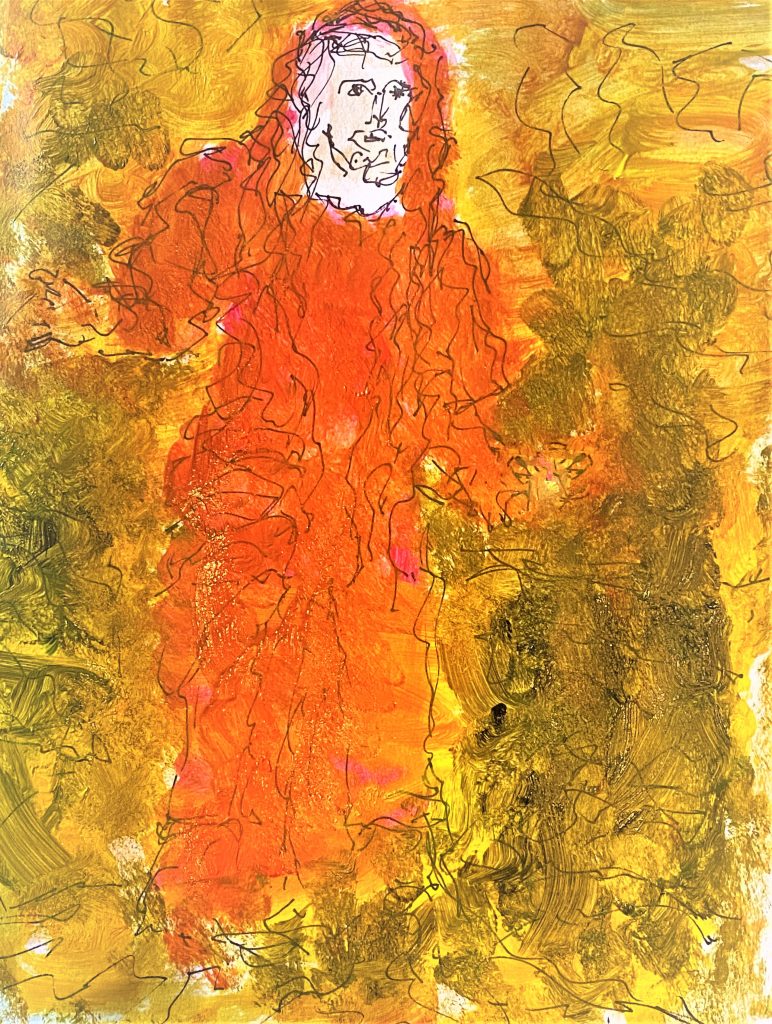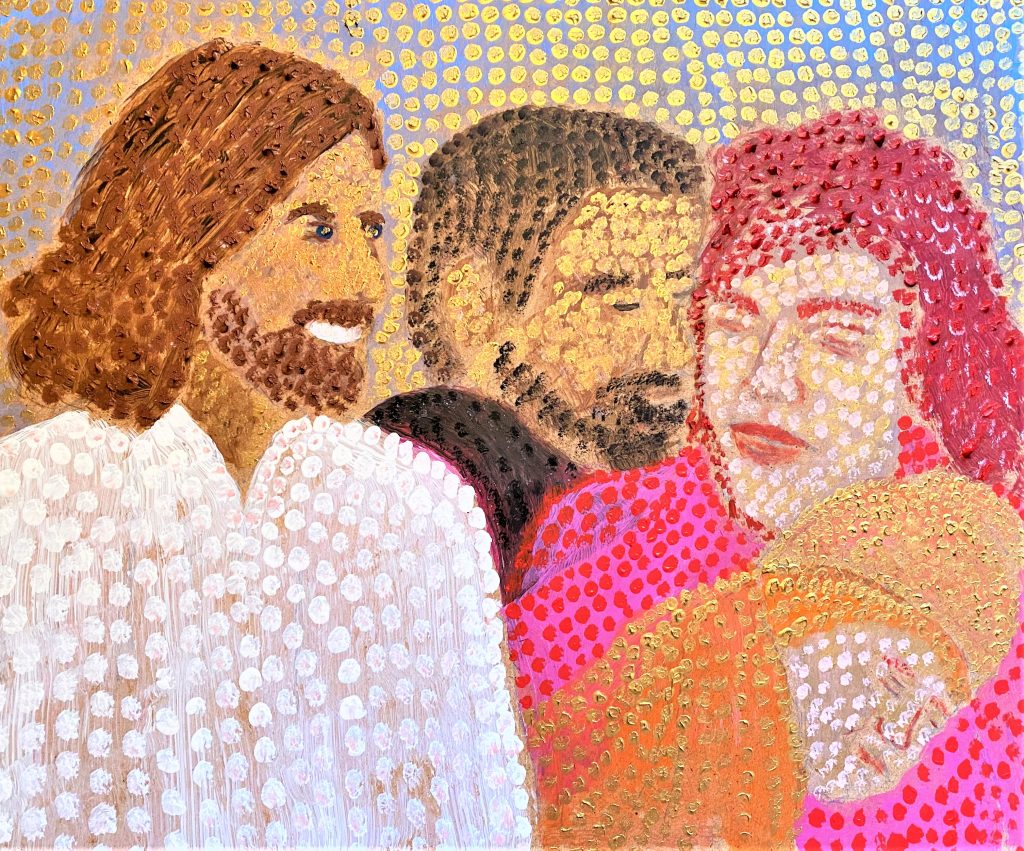
- Do Justly, Love Mercy, and Walk Humbly with God
- By Elder Dale G. Renlund
- Of the Quorum of the Twelve Apostles
- To do justly means acting honorably.
- We act honorably with God by walking humbly with Him.
- We act honorably with others by loving mercy.
- As followers of Jesus Christ, and as Latter-day Saints, we strive—and are encouraged to strive—to do better and be better.1
- Perhaps you have wondered, as I have, “Am I doing enough?”
- “What else should I be doing?”
- or “How can I, as a flawed person, qualify to ‘dwell with God in a state of never-ending happiness’?”2
- The Old Testament prophet Micah asked the question this way:
- “Wherewith shall I come before the Lord,
- and bow myself before the high God?”3
- Micah satirically wondered whether even exorbitant offerings might be enough to compensate for sin, saying:
- “Will the Lord be pleased with thousands of rams, or with ten [thousand] … rivers of oil?
- shall I give my firstborn for … the sin of my soul?”4
- The answer is no.
- Good deeds are not sufficient.
- Salvation is not earned.5
- Not even the vast sacrifices Micah knew were impossible can redeem the smallest sin.
- Left to our own devices, the prospect of returning to live in God’s presence is hopeless.6
- Without the blessings that come from Heavenly Father and Jesus Christ, we can never do enough or be enough by ourselves.
- The good news, though, is that because of and through Jesus Christ we can become enough.7
- All people will be saved from physical death by the grace of God, through the death and Resurrection of Jesus Christ.8
- And if we turn our hearts to God, salvation from spiritual death is available to all “through the Atonement of [Jesus] Christ … by obedience to the laws and ordinances of the Gospel.”9
- We can be redeemed from sin to stand clean and pure before God.
- As Micah explained, “[God] hath shewed thee, O man, what is good; and what doth the Lord require of thee, but to do justly, and to love mercy, and to walk humbly with thy God?”10
- Micah’s direction on turning our hearts to God and qualifying for salvation contains three interconnected elements.
- To do justly means acting honorably with God and with other people.
- We act honorably with God by walking humbly with Him.
- We act honorably with others by loving mercy.
- To do justly is therefore a practical application of the first and second great commandments, to “love the Lord thy God with all thy heart, and with all thy soul, and with all thy mind … [and to] love thy neighbour as thyself.”11
- To do justly and walk humbly with God is to intentionally withdraw our hand from iniquity, walk in His statutes, and remain authentically faithful.12
- A just person turns away from sin and toward God, makes covenants with Him, and keeps those covenants.
- A just person chooses to obey the commandments of God, repents when falling short, and keeps on trying.
- When the resurrected Christ visited the Nephites, He explained that the law of Moses had been replaced by a higher law.
- He instructed them not to “offer up … sacrifices and … burnt offerings” any longer but to offer “a broken heart and a contrite spirit.”
- He also promised, “And whoso cometh unto me with a broken heart and a contrite spirit, him will I baptize with fire and with the Holy Ghost.”13
- When we receive and use the gift of the Holy Ghost after baptism, we can enjoy the constant companionship of the Holy Ghost
- and be taught all things that we should do,14
- including how to walk humbly with God.
- Jesus Christ’s sacrifice for sin and salvation from spiritual death are available to all who have such a broken heart and contrite spirit.15
- A broken heart and contrite spirit prompt us to joyfully repent and try to become more like our Heavenly Father and Jesus Christ.
- As we do so, we receive the Savior’s cleansing, healing, and strengthening power.
- We not only do justly and walk humbly with God;
- we also learn to love mercy the way that Heavenly Father and Jesus Christ do.
- God delights in mercy and does not begrudge its use.
- In Micah’s words to Jehovah, “Who is a God like unto thee, that pardoneth iniquity, … will have compassion upon us,” and will “cast all … sins into the depths of the sea.”16
- To love mercy as God does is inseparably connected to dealing justly with others and not mistreating them.
- The importance of not mistreating others is highlighted in an anecdote about Hillel the Elder, a Jewish scholar who lived in the first century before Christ.
- One of Hillel’s students was exasperated by the complexity of the Torah—the five books of Moses with their 613 commandments and associated rabbinic writings.
- The student challenged Hillel to explain the Torah using only the time that Hillel could stand on one foot.
- Hillel may not have had great balance but accepted the challenge.
- He quoted from Leviticus, saying,
- “Thou shalt not avenge,
- nor bear any grudge
- against the children of thy people,
- but thou shalt love thy neighbour as thyself.”17
- Hillel then concluded:
- “That which is hateful unto you, do not do to your neighbor.
- This is the whole of the Torah; the rest is commentary.
- Go forth and study.”18
- Always dealing honorably with others is part of loving mercy.
- Consider a conversation I overheard decades ago in the emergency department of Johns Hopkins Hospital in Baltimore, Maryland, in the United States.
- A patient, Mr. Jackson, was a courteous, pleasant man who was well known to the hospital staff.
- He had previously been hospitalized multiple times for the treatment of alcohol-related diseases.
- On this occasion, Mr. Jackson returned to the hospital for symptoms that would be diagnosed as inflammation of the pancreas caused by alcohol consumption.
- Toward the end of his shift, Dr. Cohen, a hardworking and admired physician, evaluated Mr. Jackson and determined that hospitalization was warranted.
- Dr. Cohen assigned Dr. Jones, the physician next up in rotation, to admit Mr. Jackson and oversee his treatment.
- Dr. Jones had attended a prestigious medical school and was just beginning her postgraduate studies.
- This grueling training was often associated with sleep deprivation, which likely contributed to Dr. Jones’s negative response.
- Confronted with her fifth admission of the night, she complained loudly to Dr. Cohen.
- She felt it was unfair that she would have to spend many hours caring for Mr. Jackson, because his predicament was, after all, self-inflicted.
- Dr. Cohen’s emphatic response was spoken in almost a whisper.
- He said, “Dr. Jones, you became a physician to care for people and work to heal them.
- You didn’t become a physician to judge them.
- If you don’t understand the difference, you have no right to train at this institution.”
- Following this correction, Dr. Jones diligently cared for Mr. Jackson during the hospitalization.
- Mr. Jackson has since died.
- Both Dr. Jones and Dr. Cohen have had stellar careers.
- But at a critical moment in her training, Dr. Jones needed to be reminded to do justly, to love mercy, and to care for Mr. Jackson without being judgmental.19
- Over the years, I have benefited from that reminder.
- Loving mercy means that we do not just love the mercy God extends to us; we delight that God extends the same mercy to others.
- And we follow His example. “All are alike unto God,”20 and we all need spiritual treatment to be helped and healed.
- The Lord has said, “Ye shall not esteem one flesh above another,
- or one man shall not think himself above another.”21
- Jesus Christ exemplified what it means to do justly and to love mercy.
- He freely associated with sinners,
- treating them honorably
- and with respect.
- He taught the joy of keeping God’s commandments
- and sought to lift
- rather than condemn
- those who struggled.
- He did denounce those who faulted Him for ministering to people they deemed unworthy.22
- Such self-righteousness offended Him and still does.23
- To be Christlike, a person does justly, behaving honorably with both God and other people.
- A just person is civil in words and action and recognizes that differences in outlook or belief do not preclude genuine kindness and friendship.
- Individuals who do justly “will not have a mind to injure one another,
- but to live peaceably”24 one with another.
- To be Christlike, a person loves mercy.
- People who love mercy are not judgmental;
- they manifest compassion for others,
- especially for those who are less fortunate;
- they are gracious,
- kind,
- and honorable.
- These individuals treat everyone
- with love
- and understanding,
- regardless of characteristics such as
- race,
- gender,
- religious affiliation,
- sexual orientation,
- socioeconomic status,
- and tribal,
- clan,
- or national differences.
- These are superseded by Christlike love.
- To be Christlike, a person chooses God,25
- walks humbly with Him,
- seeks to please Him,
- and keeps covenants with Him.
- Individuals who walk humbly with God
- remember what Heavenly Father and Jesus Christ have done for them.
- Am I doing enough?
- What else should I be doing?
- The action we take in response to these questions is central to our happiness in this life and in the eternities.
- The Savior does not want us to take salvation for granted.
- Even after we have made sacred covenants,
- there is a possibility that we may “fall from grace and depart from the living God.”
- So we should “take heed and pray always” to avoid falling “into temptation.”26
- But at the same time, our Heavenly Father and Jesus Christ do not want us to be paralyzed
- by continual uncertainty during our mortal journey,
- wondering whether we have done enough to be saved and exalted.
- They surely do not want us to be tormented
- by mistakes from which we have repented,
- thinking of them as wounds that never heal,27
- or to be excessively apprehensive that we might stumble again.
- We can assess our own progress.
- We can know “that the course of life [that we are] pursuing is according to God’s will”28
- when we do justly,
- love mercy,
- and walk humbly with our God.
- We assimilate the attributes of Heavenly Father and Jesus Christ into our character,
- and we love one another.
- When you do these things,
- you will follow the covenant path
- and qualify to “dwell with God
- in a state of never-ending happiness.”29
- Your souls will be infused with the glory of God
- and with the light of everlasting life.30
- You will be filled with incomprehensible joy.31
- I testify that God lives
- and that Jesus is the Christ,
- our Savior
- and Redeemer,
- and He lovingly
- and joyfully
- extends His mercy to all.
- Don’t you love it?
- In the name of Jesus Christ,
- amen.
Views: 160

